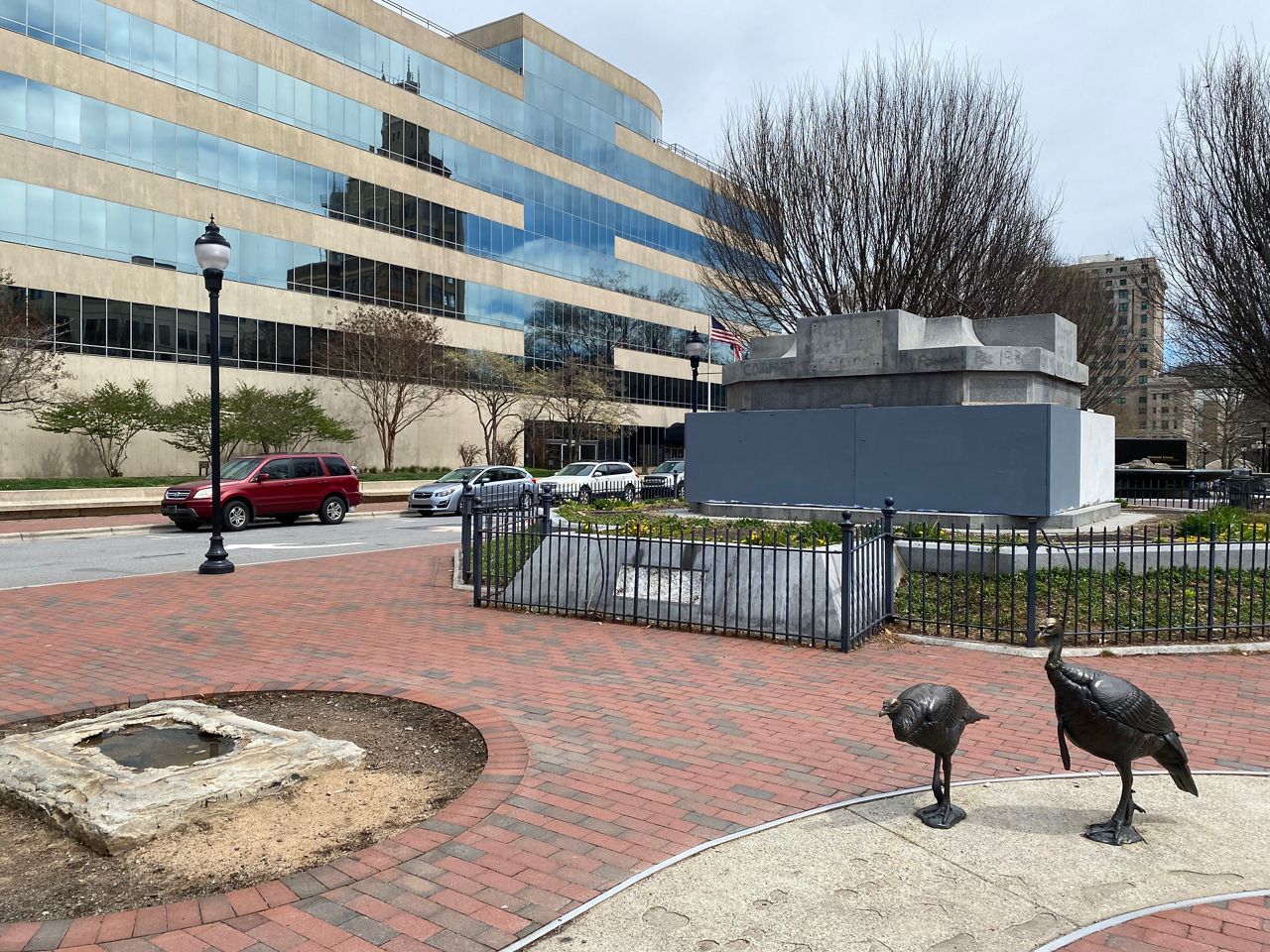ASHEVILLE, N.C. (AP) — A western North Carolina city’s decision to remove a downtown monument honoring a Civil War-era governor was upheld Tuesday by the state Court of Appeals.
An appeals panel unanimously affirmed Superior Court Judge Alan Thornburg’s decision last year to dismiss a lawsuit filed by an historic preservation group. The Society for the Historical Preservation of the 26th North Carolina Troops opposes the demolition of the obelisk honoring former Gov. Zebulon Vance in Asheville.
The Asheville City Council voted in March 2021 to remove the structure from Pack Square Plaza. The 75-foot (23-meter) tall obelisk was dismantled before the Court of Appeals told the city and Buncombe County in June to stop the demolition while appeals were heard. So the monument base has stayed in place.
The society had entered a formal agreement in 2015 with the city to restore the monument, according to Tuesday’s opinion. The society raised over $138,000 for that project, but that contract did not require city officials to preserve the 1897 obelisk, as the society contends, Court of Appeals Judge John Arrowood wrote.

Instead, the contract “was for the donation of restoration work, which was completed prior to (Asheville’s) decision to remove the Vance Monument,” Arrowood wrote in upholding Thornburg’s dismissal on grounds a contract breach claim was insufficient. Chief Judge Donna Stroud and Judge April Wood agreed with Arrowood’s ruling.
Vance, who was born in Buncombe County, served as governor from 1862-1865 and 1877-1879. He was also a Confederate military officer and U.S. senator. The city has said the monument is located on a site where enslaved people are believed to have been sold.
RELATED: Task Force Members Support Removing Confederate Monument
The monument was one of many Confederate statues and memorials that have been removed across the South since 2020 amid protests for racial justice.
“We’re extraordinarily happy with the ruling. We feel this is a resounding affirmation of our opinions from day one. We examined this closely, we we’re always confident that we had the legal right to move forward with this," Brad Branhum, attorney for the City of Asheville, said Wednesday. "But from a community perspective the city council went through an exhausted process that was heavily community focused to try to determine what the community wanted, and we feel this is exactly in line with that.”
The city plans to make the space where the monument stood to be an inclusive square, with ideas coming from the community. The monument's pieces are being held in storage and the plans are to dispose of the materials, so the monument can't be recreated.






